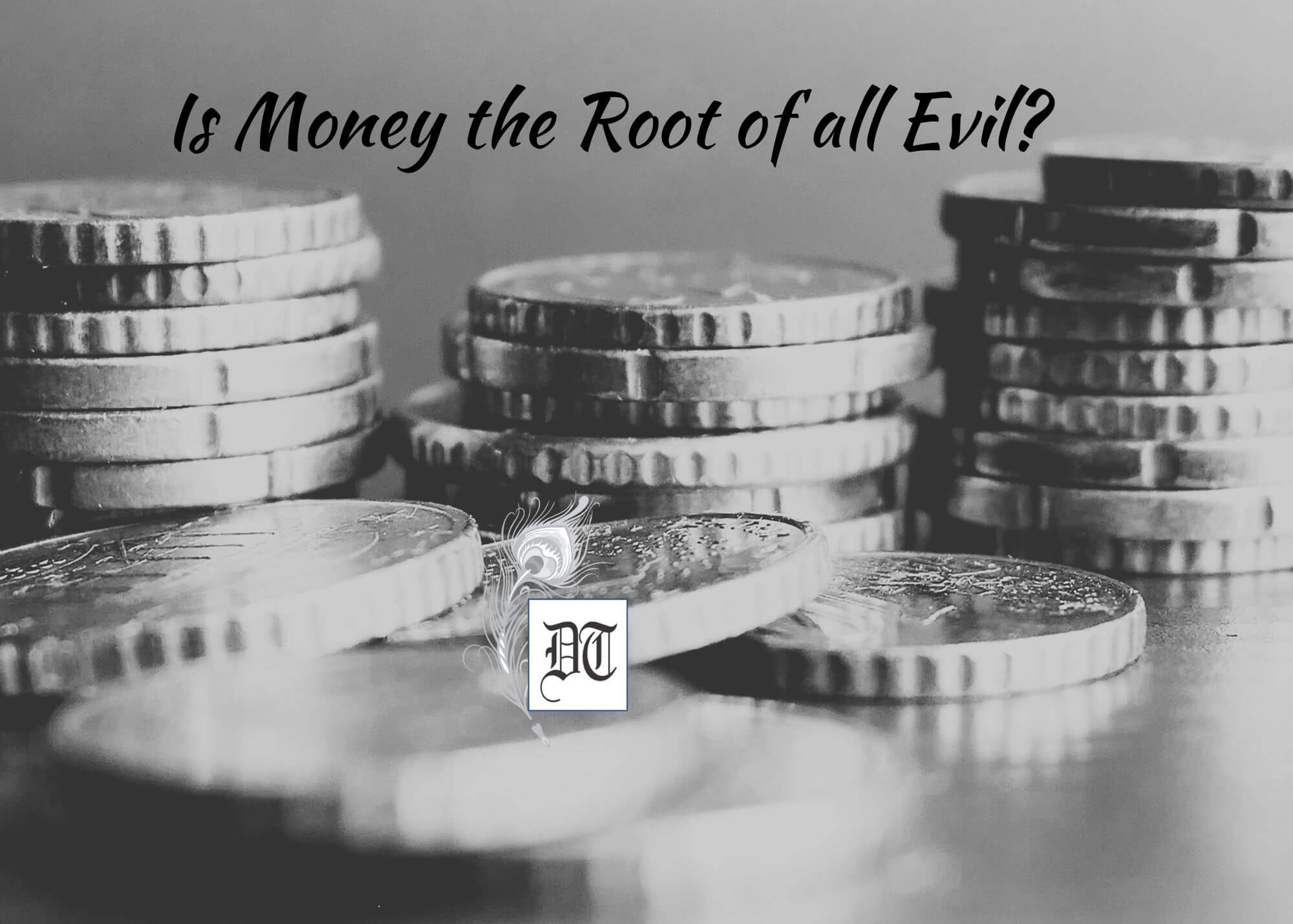The idea that money is the be-all and end-all of life has become ingrained into human consciousness. Being in a consumerist and capitalist modern society we learn to woo material riches, to cherish it as the most indispensable commodity for a happy life, simultaneously associating it with gluttony and distrust. Money is not success. Shernaz takes a hard look at the burning issue if money is the root of all evil, exclusively for Different Truths.

Fortune does not change (people), it unmasks them – Suzanne Necker
We saw those masks peel off some time back when a family’s ancestral property was to be sold. Someone’s need for money appeared like greed to others and that drove a wedge between the very loving, united family ever ready to sacrifice for one another. There were heated arguments, squabbles and it seemed that the very foundation of their exemplary relationship was ready to crumble. Thankfully, good sense, love and integrity prevailed, the issue was resolved amicably and they stayed united.
Is money really the root of all evil? Or does the root lie and is nourished elsewhere? Money is just money. A tool of convenience that is essential for survival in today’s world. Yes, it is a crucial requirement to live a life of comfort and dignity; it gives us a sense of security – an insurance against future setbacks, it guarantees the comforts and luxuries of life but it does not warrant love, admiration and fulfilment in its wake. By itself it is neither good nor bad nor filthy. We have made it the fall guy, the scapegoat by transferring our guilt narcissistically onto it. The root of evil is deeply and widely entrenched in our ravenous hunger for money and is nurtured by greed, envy, insecurity often blinding us to reason, making us judgmental and covetous. “We always think if we just had a little bit more money, we’d be happier,” says Catherine Sanderson, a psychology professor, “but when we get there, we’re not.” Wealth is to be shared, spent, given away or left behind. We do not have the option to take it along with us when we die. Why then do we all run after it?
The idea that money is the be-all and end-all of life has become ingrained into human consciousness. Being in a consumerist and capitalist modern society we learn to woo material riches, to cherish it as the most indispensable commodity for a happy life, simultaneously associating it with gluttony and distrust. While we keep investing our money to make it grow, we inadvertently invest our emotional self in it and endow it with power over us. We wrongly equate financial prosperity with happiness and success and make it the motivational factor toward building our career or setting our goals. Money is not success. Oprah Winfrey, one of the most successful and influential persons today, says: “How do I define success? Let me tell you, money’s pretty nice. But having a lot of money does not automatically make you a successful person. What you want is money and meaning. You want your work to be meaningful, because meaning is what brings the real richness to your life.”
We allow our minds to be inundated by money, money, money – either the abundance, the lack of it or somewhere in between, while we often forget to live, putting it off for a future date that never comes. Leo Tolstoy’s story, ‘How much land does a man need?’ should make us stop short in our race for material acquisition and find the answer to that question. Our attitude towards money and our thoughts about it define us. As Stephen R. Covey points out “People with a scarcity mentality tend to see everything in terms of win-lose. There is only so much; and if someone else has it, that means there will be less for me. The more principle-centred we become, the more we develop an abundance mentality, the more we are genuinely happy for the successes, well-being, achievements, recognition, and good fortune of other people. We believe their success adds to…rather than detracts from…our lives.”
We self-righteously forward jokes, articles and inspirational quotes telling us about the things that money can’t buy – those priceless treasures that make life worthwhile. How many of us take time to weigh up those words, mull over them and realise their truth within ourselves? We justify our avarice with the apology that we want only a little more than we need for a comfortable life because we are anxious about the future. We construct excuses to validate our stand that money matters most in our lives. There are so many what-ifs that inform our decisions and add to our insecurities. What is luxury for those below our economic plane becomes a necessity for us. The lifestyles of those above us invite our resentment and we deride their standards as vulgarity. Whom do we fool? And why should we censure money?
Money is nothing more or less than a handy instrument devised for our daily wants and to ease transactions. If some are wealthier than others it is because they know how to draw affluence into their lives. We do not need to judge them on the basis of their assets nor do we need to feel sorry for ourselves. As Wayne Dyer has said, abundance is not acquired, we have to tune into it and we have to become the magnets that attract it towards us. We have been blessed by a plethora of resources which can be used to judiciously create a life of beauty, grace, joy and substance. Steve Forbes argues: The real source of wealth and capital in this new era is not material things…it is the human mind, the human spirit, the human imagination, and our faith in the future.”
Even though it plays a very important role in our lives, money is dispassionate. As we earn and spend it we must always keep track of what it costs us. We should not raise it to the level where we forfeit our dignity, relationships, health, happiness and the ability to enjoy a simple lifestyle. It says derisively, “You invented me, you come kowtowing after me. Don’t accuse me of being evil.” Let us wake up to the fact that the potential, the basis for good or evil is nowhere else but within us.
Spirituality
Poetry is not in the words or verses I write. It is in everything I see around me. It beats with its own life force in nature. Nature that man has for aeons observed, studied, admired, fallen in love with, hated, feared, tried to subjugate – nature – of which he is an indivisible part; but from which he has alienated himself believing in his self-appropriated superiority.
Picture design Anumita Roy
#Money #HumanThoughts #Happiness #Evil #Love #Hate #DifferentTruths





 By
By
 By
By
 By
By